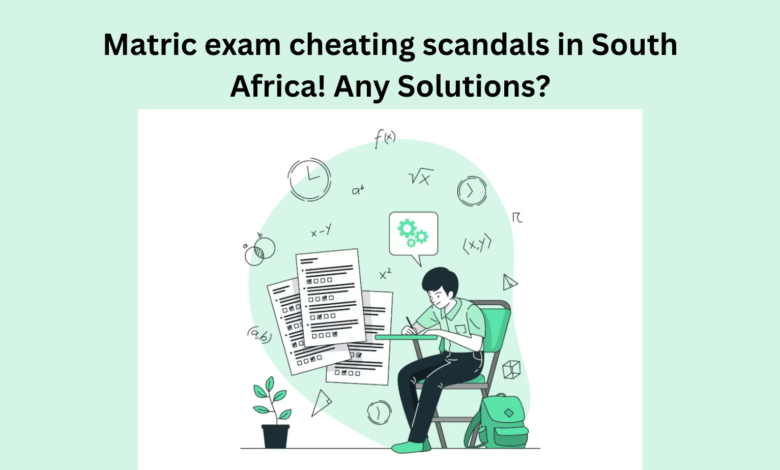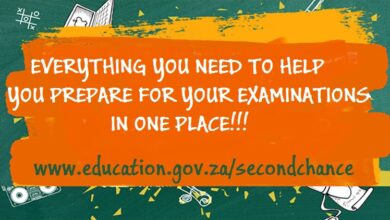Matric exam cheating scandals in South Africa! Any Solutions?

Matric exam cheating scandals in South Africa! Any Solutions?
Reports of a 2022 matric exam cheating scandal involving almost 400 pupils in Mpumalanga have once again brought to spotlight the ethical conduct and transparency of the South African Education system.
The latest scandal is a manifestation of corruption and moral failure in the execution of ethical standards by educational officials as it entangled a web of WhatsApp groups featuring teachers in which pupils would share answers whilst exams were in motion.
Over 1000 schools in Mpumalanga were reportedly involved in the scandal. In response, the Basic Education Department has imposed a fine of 3000 rands and issued them with written warnings.
But will this stop leakages?
This is not the first time Mpumalanga has been involved in Matric Exam Cheating Scandal.
In 1998–the Mpumalanga Department of Education fired two high-ranking officials for their involvement in that year’s matric scandal in which the pass rate was fraudulently inflated to 72% with public educational officials such as teachers and invigilators having been implicated in the scandal.
During that same year, the Department of Education said it would enforce strict measures to curb group copying but the latest scandal shows massive loopholes in plugging leakages.
Between 2014 and 2016 a group cheating scandal rocked Kwazulu Natal and Eastern Cape Provinces with 56 schools having been reported to be part of a well-orchestrated exam spillage plot.
At the centre of such exposition is Umalusi–an exam monitoring body that in 2015 uncovered 26 cases of probable group copying during the 2015 matric exams in particular after 58 exam centres had been implicated in similar spillage scandals in 2014.
Group copying is defined as any form of assistance given to a group of students in an exam by another student, teacher or invigilator.
Given this background of continued spillages aided by key elements with the Basic Education Department, it is important to reflect and question if the authorities are doing enough to curb these leakages which are becoming a denting hallmark whose long-term effect could harm how the South African Education System is perceived by the outside world and in particular the global community.
Firstly, a fine of 3000 rands seems too little for such an offense which is increasingly posing a danger of creating a dent and negative perception of the South African Education System, and an increase of such penalty to R10 000 could frighten any would-be offenders and decrease the rates of spillages.
Secondly, would be offenders could also be slapped with a ban from practising in the education sector for a period of at least 5 years.
Current laws and code of conduct governing South African exams could be tightened in terms of enforcement and implementation as they seem too lenient and soft on schools and students.
The department of Basic Education could also consider de-registering and suspending centres implicated in the spillage scandals and should only lift such a ban once measures are put in place to ensure ethical conduct, transparency, and credibility as far as examination processes are concerned.
THE END.
ALSO CHECK: How to get Matric results online





